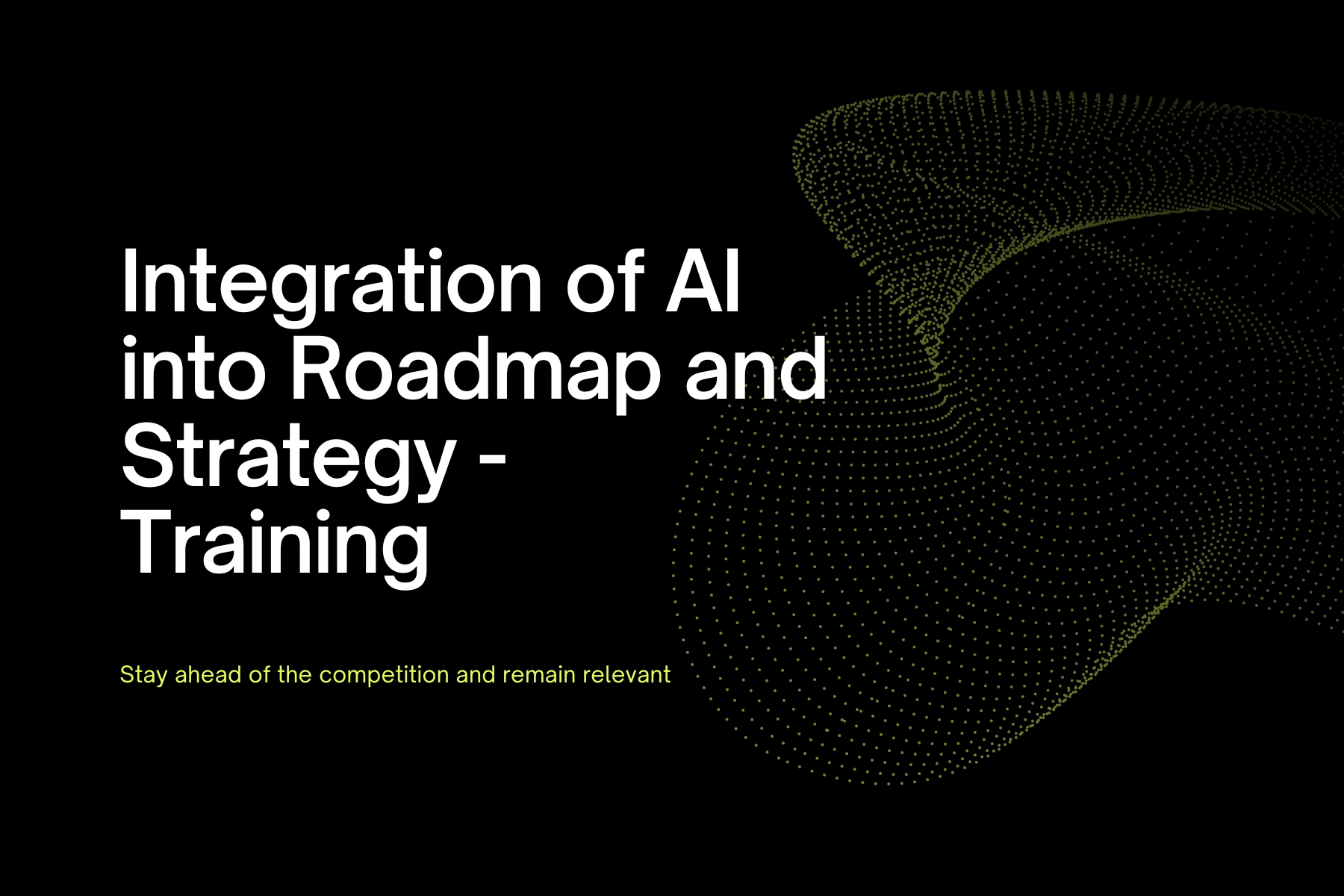Integration of AI into Roadmap and Strategy – Training

About Course
Our “Integration of AI into Roadmap and Strategy” online course is designed to empower leaders and decision-makers with the knowledge and skills needed to harness the transformative potential of Artificial Intelligence (AI) in the business world. In today’s competitive landscape, AI has emerged as a game-changer, disrupting industries and reshaping traditional business models. This comprehensive program provides a deep dive into the integration of AI technologies, ensuring participants gain a strategic understanding of how to leverage AI for sustainable growth and innovation.
What Will You Learn?
- Foundational Understanding of AI: Gain insights into the fundamentals of AI, including machine learning and deep learning, and explore real-world applications across diverse industries.
- Strategic Planning and Roadmapping: Learn how to create a tailored AI roadmap aligned with organizational goals, emphasizing stakeholder engagement, resource allocation, and budgeting.
- Assessing AI Readiness: Understand how to assess existing infrastructure, data quality, and workforce capabilities, ensuring a solid foundation for successful AI implementation.
- Identifying High-Impact Use Cases: Explore industry-specific challenges, prioritize use cases, and develop prototypes, enabling targeted and effective AI integration.
- Ethical AI Development: Navigate ethical considerations, biases, and regulatory compliance associated with AI technologies, fostering responsible AI practices within your organization.
- Talent Acquisition and Development: Identify talent needs, implement recruitment strategies, and create continuous learning programs, building a skilled workforce capable of driving AI initiatives.
- Effective Data Management: Develop data governance policies, ensure data quality, and implement security measures, enabling the use of high-quality data for AI projects.
- Optimizing AI Operations: Learn best practices for model deployment, monitoring, incident response, and scalability, ensuring the seamless functioning of AI systems in production environments.
Benefits for Participants:
- Strategic Vision: Develop a strategic vision for integrating AI into your organization’s business strategies, ensuring a competitive edge in the rapidly evolving market.
- Leadership Skills: Enhance your leadership skills by understanding the nuances of AI implementation, enabling you to guide your team effectively through the AI integration process.
- Innovation and Efficiency: Drive innovation and operational efficiency by leveraging AI technologies to optimize processes, improve decision-making, and identify new revenue streams.
- Responsible AI Practices: Foster a culture of responsible AI usage, addressing ethical concerns, biases, and compliance requirements, enhancing your organization’s reputation and credibility.
- Talent Development: Learn how to identify, recruit, and nurture AI talent within your organization, ensuring a skilled workforce capable of driving AI initiatives forward.
Who Should Study This Program?
- C-Suite Executives: CEOs, CTOs, and CFOs seeking to lead their organizations through AI integration, ensuring sustainable growth and innovation.
- Business Leaders: Directors, VPs, and Managers responsible for strategic decision-making, looking to leverage AI technologies for business transformation.
- Entrepreneurs: Individuals interested in starting AI-driven ventures, understanding how to create a roadmap and integrate AI into their business models effectively.
- Policy Makers: Government officials and policymakers aiming to understand the implications of AI on regulations, ethics, and societal impact, shaping informed policies for the future.
- Tech Enthusiasts: Professionals from technical backgrounds interested in exploring the strategic aspects of AI integration, bridging the gap between technical expertise and business acumen.
Join our course and embark on a transformative learning journey that equips you with the knowledge and skills to lead your organization confidently into the AI-driven future. Stay ahead of the curve and unlock the full potential of AI for your business success. Enroll now and shape the future of your organization with AI innovation and strategic vision!
Course Content
Topic 1: Intro to AI & impact on business
-
Understanding the Fundamentals of AI
-
AI’s Impact on Business Models
-
Addressing AI Challenges and Risks
Topic 2: Creating an AI roadmap
Topic 3: Assessing AI capabilities and infrastructure
Topic 4: Identifying potential AI use cases
Topic 5: AI ethics and considerations
Topic 6: AI talent acquisition and development
Topic 7: AI data strategy and management
Topic 8: AI operations and monitoring
Student Ratings & Reviews

